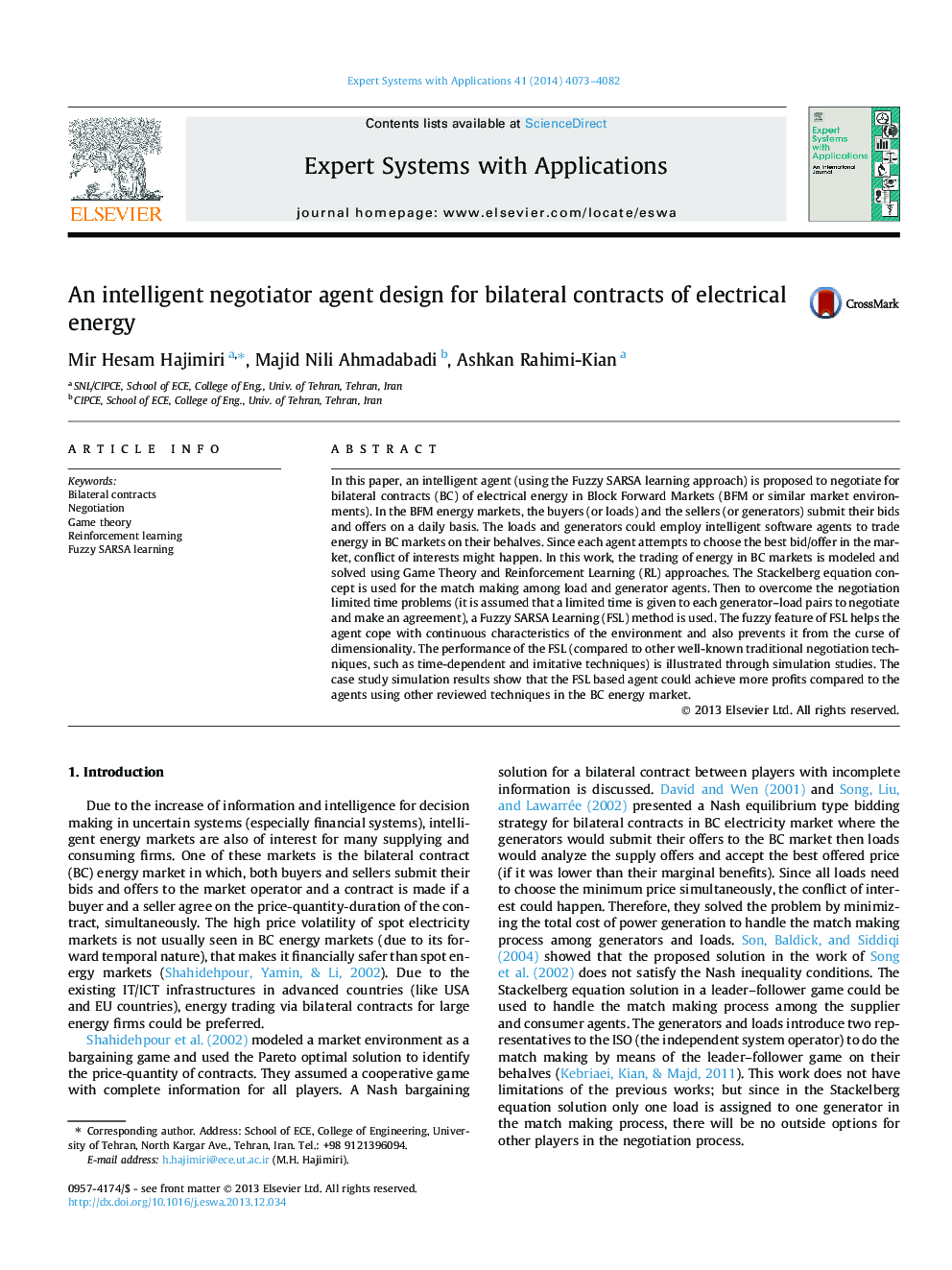| کد مقاله | کد نشریه | سال انتشار | مقاله انگلیسی | نسخه تمام متن |
|---|---|---|---|---|
| 386570 | 660886 | 2014 | 10 صفحه PDF | دانلود رایگان |
• An intelligent agent is proposed to negotiate for bilateral contracts.
• The Stackelberg game is used to match the seller (load) and buyer (generator) agents.
• A limited time is given to each pairs to negotiate and make an agreement.
• The intelligent agent uses a Fuzzy SARSA learning method for the negotiation process.
• Appropriate definitions of states & rewards play key roles in the learning process.
In this paper, an intelligent agent (using the Fuzzy SARSA learning approach) is proposed to negotiate for bilateral contracts (BC) of electrical energy in Block Forward Markets (BFM or similar market environments). In the BFM energy markets, the buyers (or loads) and the sellers (or generators) submit their bids and offers on a daily basis. The loads and generators could employ intelligent software agents to trade energy in BC markets on their behalves. Since each agent attempts to choose the best bid/offer in the market, conflict of interests might happen. In this work, the trading of energy in BC markets is modeled and solved using Game Theory and Reinforcement Learning (RL) approaches. The Stackelberg equation concept is used for the match making among load and generator agents. Then to overcome the negotiation limited time problems (it is assumed that a limited time is given to each generator–load pairs to negotiate and make an agreement), a Fuzzy SARSA Learning (FSL) method is used. The fuzzy feature of FSL helps the agent cope with continuous characteristics of the environment and also prevents it from the curse of dimensionality. The performance of the FSL (compared to other well-known traditional negotiation techniques, such as time-dependent and imitative techniques) is illustrated through simulation studies. The case study simulation results show that the FSL based agent could achieve more profits compared to the agents using other reviewed techniques in the BC energy market.
Journal: Expert Systems with Applications - Volume 41, Issue 9, July 2014, Pages 4073–4082
